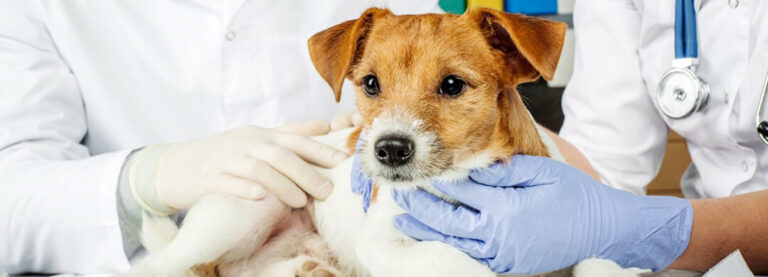VALLEY STREAM, NY – Everyone knows that people of all ages suffer from seasonal allergies. In fact, the American College of Allergy, Asthma and Immunology estimates that more than 50 million Americans are affected by allergies each year. But, Central Veterinary Associates (CVA) is reminding pet owners that allergies are also extremely common in cats and dogs?
Of course, there’s the more widely recognized food and environmental allergies, but our furry friends can also suffer from seasonal allergies, just like the rest of us. Symptoms of seasonal allergies in pets are usually skin-related, which leads to itchiness, inflammation and hot spots, but can also cause ear and respiratory problems.
It starts with basic and common scratching or biting of the skin, but allergies results in a far more excessive attempt on the pet’s part to eradicate the problem. They may use hard or scratchy surfaces to find relief and, as the itching persists, it is likely that the skin will become inflamed – which can lead to hair loss, open sores or scabbing. In dogs, you might find a hot spot, which is an infected area of skin that is very red and might even bleed.
“Like many humans, pet allergies can also cause ears to become itchy or inflamed, which will lead to them scratching their ears or shaking their heads, as well as hair loss around the ears,” explains Dr. John Charos, DVM, CEO & President of CVA. “For dogs, this might even lead to the growth of yeast or bacteria, which can be spotted by an odor or discharge. Though most pets do not also develop respiratory symptoms with their allergies, some have been found to experience watery eyes, coughing and sneezing.”
So, how can pet owners help their furry friends during the Spring Sneezing Season? For starters, it may seem counterintuitive, but try to limit their time outdoors – especially from lounging around on the deck or the yard, where pollen might settle. If your pet insists on being outside, take special care to hose of the deck or patio to give them an area to lay.
“Of course, with dogs, it is impossible for them to not spend some time outdoors, especially when it comes to bodily functions,” continue Dr. Charos. “So, when they come inside, be sure to rinse off their paws and use a damp towel to wipe down their fur. If there are other, non-allergic pets in the home, make sure to wipe them down as well, so the pollen doesn’t come into the house.”
Try as you might to avoid pollen coming indoors, those tiny particles manage to squeeze their way in. To help alleviate problems for pets, especially indoor cats, it is helpful to vacuum and mop floors multiple times each week and wash pet beds and any other pet sheets or blankets at least once per week, using simple, non-toxic cleaning agents. Frequent baths, with a medicated shampoo prescribed by a veterinarian, will also help give them immediate relief if they are itchy and will wash away any allergens on their coats.
Lastly, since allergies are an immune system response, it’s important to schedule vaccines at times when the pet is not experiencing allergy systems. It’s also wise to provide your pet with hypoallergenic diet, and/or novel protein diet that will decrease the chance for allergy flare ups. There are also many allergy-fighting supplements that can be prescribed for your pet, such Omega-3 fatty acids.
If you think your pet is suffering from allergies, contact your local Central Veterinary Associates office, where a professional team can evaluate and treat them. For more information about CVA or to make an appointment, call 1 (888) 4CVA-PET (428-2738) or visit www.centralvets.com.





